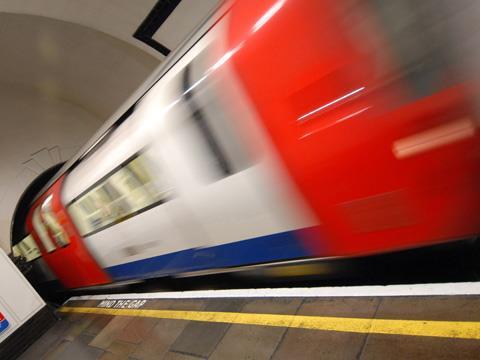
IT TOOK five years to create the immensely complex Public-Private Partnership under which Tube Lines and Metronet Rail assumed full responsibility for maintaining and renewing infrastructure and trains on the London Underground for 30 years, starting in 2003.
In return they were promised an Infrastructure Service Charge of around £1bn a year paid by Transport for London, using government grants. Tube Lines was allocated the Jubilee, Northern and Piccadilly lines (JNP), while Metronet won the rest under two separate contracts (BCV and SSL).
Tube Lines has performed well, meeting its contracted targets for renewals within the estimated cost. Metronet fell seriously behind on station upgrades, overspent its budget, and complained that it was being required by LU to do work not contracted without extra payment. Metronet applied on June 28 to the PPP Arbiter Chris Bolt (who is also Chairman of the UK's Office of Rail Regulation) for an Extraordinary Review of its BCV contract, claiming an additional payment of £992m. This is 36% of BCV's contracted ISC payments totalling £2774m for the first 71/2 year PPP Review Period.
Meanwhile, the noose was tightening around Metronet's neck. A few weeks ago, the five partners who own it (WS Atkins, Bombardier, Balfour Beatty, EDF Energy and Thames Water) blocked the draw-down of loans, and the first three announced write-offs totalling £303m. LU informed Metronet on June 29 that TfL would not underwrite 95% of any further loans from banks – one of the more controversial aspects of PPP contracts which were supposed to transfer risk to the private sector.
By July 12 the company was demanding that the Arbiter should order LU to pay £551m (56% of the £992m) in the form of Interim ISC payments, starting immediately. When Bolt issued a Draft Direction on July 16 proposing that LU should only pay £121m more between January and June 2008, Metronet asked Mayor of London Ken Livingstone to put both BCV and SSL into administration. Alan Bloom of Ernst & Young (who performed the same service for Railtrack in 2001-02) was appointed PPP Administrator on July 18.
With typical flamboyance, Mayor Livingstone, who had opposed the PPP tooth and nail but had it forced upon him by the Treasury under the Chancellor Gordon Brown (now Prime Minister), described Metronet as 'in exactly the same position as Monty Python's parrot: it may look as though it's alive, but it's gone'. However, Bloom said he had applied for a First Day Order that 'devolves the day-to-day management, operational responsibility for the business, back to Metronet and its management team and Metronet employees', with TfL funding the company while its future is determined.
Two glaring flaws in Metronet's management of the PPP are evident. First, work was parcelled out to its owners without competitive bidding whereas Tube Lines' partners Bechtel and Amey tendered all work. Second, Bolt 'disallowed' a £219m claim for 'extra' work because if it had 'made full use of the contractual provisions available to it' Metronet would still have 'money in the bank'.
Will BCV and SSL be rebid? Quite possibly, but with TfL and LU in the driving seat, we can be sure that control over the new PPP contractors will be far tighter than Gordon Brown's version.

















